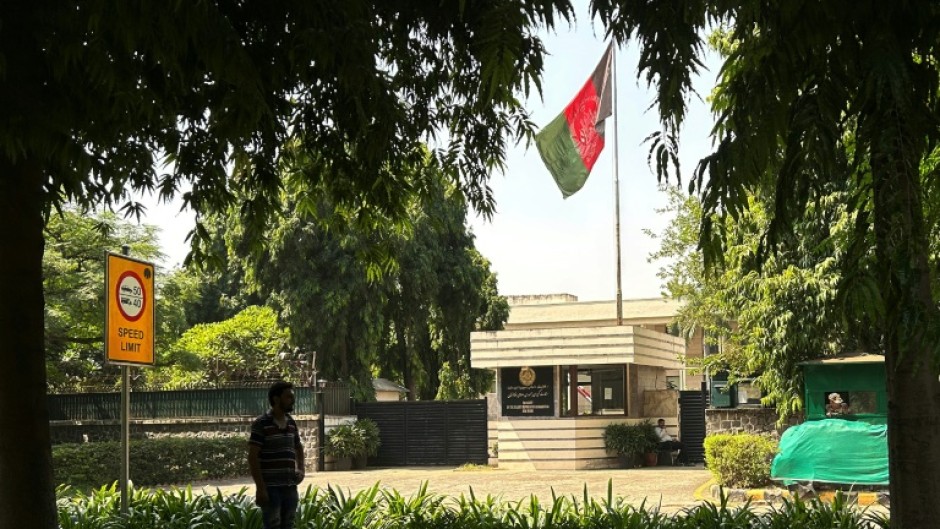Afghanistan's embassy in India suspended operations on Sunday, more than two years after the Taliban's return to power in Kabul following the collapse of the Western-backed government.
Most foreign nations -- including India -- do not officially recognise Afghanistan's Taliban government, but acknowledge them as the de facto ruling authority.
This has left many Afghan embassies and consulates in limbo, with diplomats appointed by the former government refusing to cede control of embassy buildings and property to representatives chosen by the Taliban authorities.
"It is with profound sadness, regret, and disappointment that the Embassy of Afghanistan in New Delhi announces this decision to cease its operations," said an embassy statement posted on the social media platform X.
India will take control of the embassy in a caretaker capacity, it said.
The unsigned statement said it had been "increasingly challenging" to continue operations due to cuts in staff and resources, including a "lack of timely and sufficient support from visa renewal for diplomats".
The closure follows reports that the ambassador and other senior diplomats had left India in recent months, with infighting among those remaining in New Delhi.
But the embassy said in its statement that it "categorically refutes any baseless claims regarding internal strife" among staff, and denied any diplomats were "using the crisis to seek asylum in a third country".
New Delhi evacuated its entire mission from Kabul as the Taliban closed in on the Afghan capital in August 2021, but last year sent back a small team to reopen its sprawling embassy.
Most foreign nations similarly withdrew diplomatic staff at the time and have not returned, although a handful of embassies -- including Pakistan, China and Russia -- never closed, and still have ambassadors in Kabul.
- Tens of thousands stranded -
The change of power in Kabul stranded tens of thousands of Afghan students, businesspeople and medical tourists across the world.
Most chose not to return, including dozens of Afghan army cadet officers training at Indian war colleges who feared persecution if they went back.
Some have gone back, however, with the Taliban authorities keen to publicise any returns as a sign of faith in their leadership.
The Taliban authorities have full control of around a dozen Afghan embassies abroad -- including in Pakistan, China, Turkey and Iran.
Others operate on a hybrid system, with the ambassador gone but embassy staff still carrying out routine consular work such as issuing visas and other documents.
In January last year, Italian police were called to Afghanistan's Rome embassy after scuffles broke out when a junior diplomat claimed he had been appointed by the Taliban's leaders to take over from an ambassador loyal to the former government.
Most senior Afghan foreign ministry officials are currently in Moscow attending a Russia-brokered conference on the country, and were not available to comment on the closure of the embassy in New Delhi.
There was no immediate response from India.

